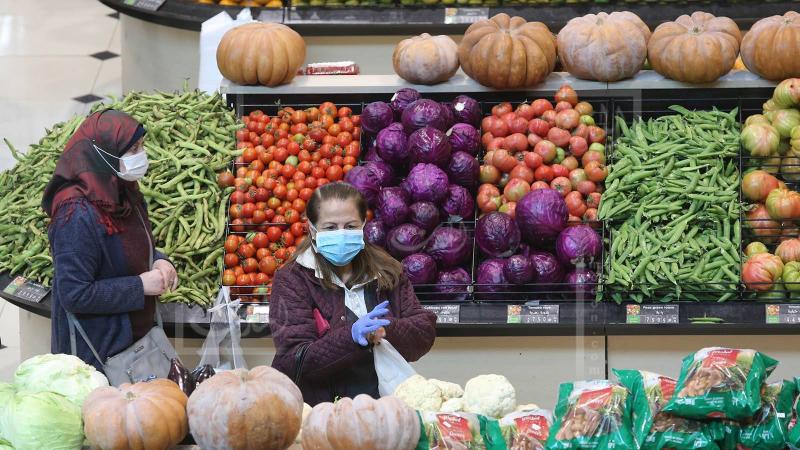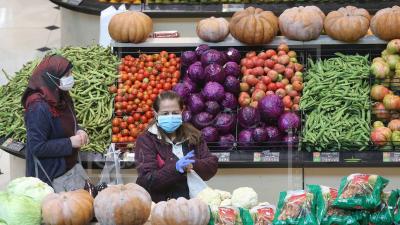"All prices are sky-high"... this is the sentiment of the Lebanese citizen, who is now managing his affairs in the best possible way, cutting back here and saving there. This applies to the prices of vegetables and fruits, where you won't find any item priced less than 30,000 LBP per kilogram, while seasonal fruit prices exceed 70,000 LBP. At a time when citizens crave these items, farmers are threatening to discard their produce. At first glance, this seems surprising... but farmers have grievances that go beyond prices. The production is trapped in front of agricultural centers at the Port of Beirut and border crossings due to an open strike by public sector employees, which has prevented the export of thousands of tons of Lebanese fruit and vegetables. Further delays will lead to spoilage and hinder the entry of hard currency into the country, resulting in catastrophic consequences for farmers who have been struggling since before the collapse in 2019.
Ibrahim Tartoushi, president of the Farmers and Peasants Association, explains to "Akhbar Al-Yawm" Agency that what we are currently experiencing is not new; rather, the situation has worsened repeatedly. He states: Lebanese production is delayed at the airport and at the border crossings from Masnaa to Aboudiyyeh and at the port. The strike only exacerbated the situation. Tartoushi adds: We have sounded the alarm more than once and warned of continued spoilage of production at these facilities, but no one has responded. He emphasizes that the agricultural sector cannot endure a public sector strike lasting 20 days, while production must reach the importing country and be consumed within this timeframe. He continues: We are currently in the peak season, and the losses will be immense. For example, the cherry season lasts less than a month, and if there is no capacity for export, leaving the fruits on the trees might be more economical than the costs of picking, packaging, and transportation. He notes that production exceeds the needs of the local market since part of it is designated for export and has no market domestically.
When asked whether stopping exports will lead to lower local prices, Tartoushi explains that local prices are linked to the rising costs of production, from seeds to fertilizers. Moreover, fuel prices automatically lead to increased transportation costs. He says: For the first time in the history of Lebanese agriculture, the price of a fuel canister has reached this level; how can the sector withstand and continue? He adds: All of this makes the costs far beyond what the citizen can afford by tens of times. Above all, the strike of public sector employees has come at a time when exporting agricultural products requires 3 or 4 employees to work for two hours—from the long list of the Ministry of Agriculture's staff—to facilitate export affairs. We are not asking for the impossible or to end the strike.
He states: "The employees are good people" who understand our situation; they are deprived and have had their rights denied. We are not against them or their demands, but injustice should not lead to another injustice that destroys the sector. Public facilities need to remain operational to handle matters that cannot wait. Regarding the possibility of a quick resolution, Tartoushi reveals that after a series of contacts with the Ministry of Agriculture, they received a promise to facilitate matters today to avoid worse outcomes. He concludes: "The fault does not lie with the employee, but with the state."




